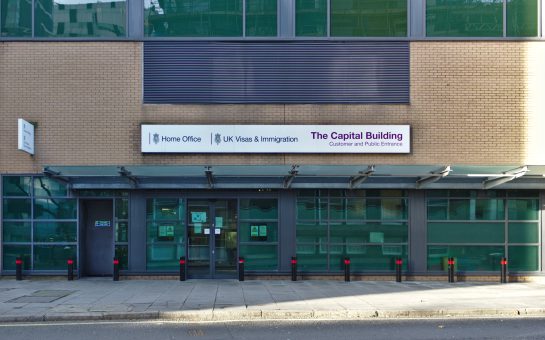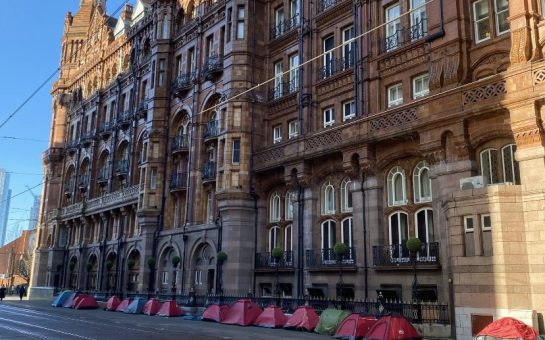Jalene* is a young migrant from Ethiopia who, when offered a visitor visa to the UK, jumped at the chance to gain a good education in a Western country that would welcome her with open arms.
Or so she thought.
Four years on, Jalene has decided to reveal all to MM about her struggles, as she worked to achieve a dream and battle against the ultimate enemy: the British immigration system.
Set with an ambition to better herself and achieve a higher education at Manchester University, it was this aim which proved to be the first of many obstacles that she faced.
“Pursuing education was severely tough, the main reasons being that I have not been allowed to work and I’m not entitled to any state support except for a few months at the initial stage,” she told MM.
“A partial tuition fee waiver scholarship from the University of Manchester and the incredible support by some charity organisations and friends let me survive and finish my study – I graduated a couple of days ago in a master’s degree.”
In spite of her outstanding achievement, Jalene believes other people in her situation are not so lucky.
“My experience shows that such cases [as hers] are extremely rare, principally due to severe challenges and barriers,” she said.
However, Jalene also said that despite the challenges and stress, being in education helped her ‘to keep optimistic and positive’.
As well as pursuing an education, she has established a commitment to voluntary work, which she carries out with various non-profit community organisations.
She said: “I believe I hugely contributed to the UK society via voluntary work.”
Regardless of Jalene’s value to British society, she is still labelled as an immigrant, rather than a person, and this stigma has infiltrated all aspects of her life.
Reflecting on this she said: “My experience demonstrates that one’s living condition in Manchester or the UK is hugely associated with his/her immigration status rather than their humanity, their contribution to the society, or the risk they may face if they are returned to where they are from.
“Therefore, while the labelling and immigration status classification appears to be very subjective to individual immigration officers, highly politicised, random and ‘lottery-like’, the living conditions are unthinkably hostile for individuals with a certain type of immigration status such as refused asylum seekers.”
In contrast to the poor living conditions, Jalene sees the British health care system as inclusive and even welcoming of migrants, which is valuable when considering the often difficult journey they have been on.
“Despite the health challenges of most migrants associated with trauma and uncertainty, in my view the health provision is very good in general, unless certain migrants fear to come forward to access health services due to lack of necessary documents,” she added.
In terms of emotional support, however, Jalene thought that only people in the same situation were those that she could talk to.
“I speak to anyone whom I think can understand and make change,” she admitted.
In addition to drawing from her own experiences, the young migrant contemplated the lives of others who had shared their journeys with her.
The difference between all these stories she says is the way the immigrants have been treated by the public.
And while Jalene thought she had always been treated fairly by her peers, she knew of others who hadn’t been so lucky.
About the public’s treatment of migrants Jalene said: “Although my personal experience in this regard is good generally, I have noticed a significant amount of unfair treatment of some migrants.
“Especially those with language barriers and certain immigration status such as asylum seekers and refused asylum seekers.
“In my view such problems are stemming from both parties – the host society as well as migrants themselves.
“For example, failure to integrate by migrants; and hostility to embrace by the host society.”
Jalene also blames the British media for the public’s treatment of migrants, claiming that they pit the two groups against each other unnecessarily.
When asked if she could change anything about this country’s attitude to immigration, Jalene said: “The view of the media on immigration and migrants and implication is highly and negatively politicised and biased on immigration policy.
“My experience with many migrants strongly demonstrates that almost all of them want to work, earn, and contribute to the country.
“Surprisingly, many of them have no clue about any benefit system until they are subjected to be in but despite this they are named as ‘scavengers’ by many.
“Most importantly, the fact that many migrants are prohibited from working, paying taxes and contributing to the community, and supporting themselves, but instead are forced to live in a limbo of destitution, or in certain cases forced to be a burden for the social welfare system.”
*This name has been changed for protection of identification.
Image courtesy of Icars, with thanks



